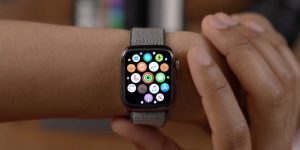A recent Stanford University School of Medicine study funded by Apple found that smartwatches can “safely identify heart rate irregularities.” Beginning in 2017, the Apple Heart Study gave 400,000 participants an Apple Watch fitted with heart-rate pulse sensors. When the wearable device detected atrial fibrillation, testing done in a clinic confirmed an 84% accuracy rate.
“The results of the Apple Heart Study highlight the potential role that innovative digital technology can play in creating more predictive and preventive health care,” said Lloyd Minor, M.D., Dean of the Stanford School of Medicine, in a press release. “Atrial fibrillation is just the beginning, as this study opens the door to further research into wearable technologies and how they might be used to prevent disease before it strikes – a key goal of Precision Health.”
However, physicians and researchers over at the Mayo Clinic were slightly less enthusiastic. Another recent study showed that only around 10% of those who sought medical advice due to the Apple Watch alerting them to heart irregularities were actually experiencing any sort of cardiac condition. This raises concerns about patients flooding healthcare clinics based on readings they received from their smart watch, when in reality, their health may not be at risk. The year 2020 has already experienced a massive overburdening of the healthcare system, and doctors worry that these types of detections from the Apple watch may only exacerbate that.
Moreover, its blood oxygen sensor, which could lead to people attempting to self-diagnose themselves with COVID-19, has not been approved nor certified by medical experts. Consumers should be wary of replacing their doctor with a wearable device and should seek out medical attention via a HIPPA-compliant telehealth app or a regular office visit before turning to their wearables to diagnose their illnesses.
The Apple watch can help curb a sedentary lifestyle, track your workouts, aid in developing a long-term fitness plan, and give you a pretty good idea of whether or not you’re getting a good night’s sleep. While the potential implications for further health diagnostics seem to be on the horizon, for now, wearables should mainly be considered a supplemental device to be used in tandem with regular health checks.























